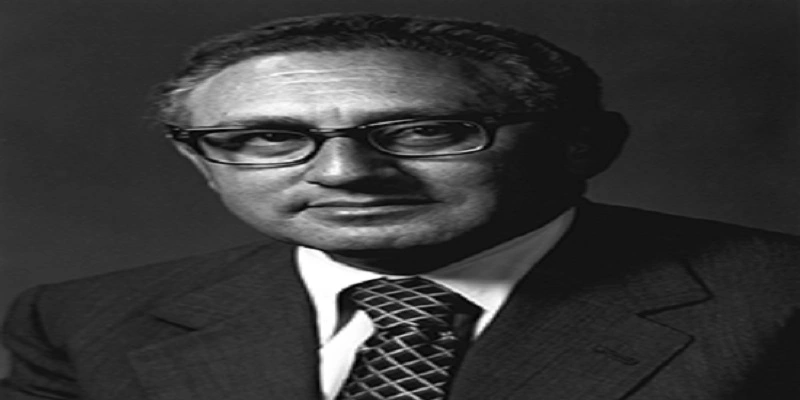Pakistan's Pivotal Role in US-China Rapprochement
Henry Kissinger's trip to China is an occasion with significant significance for the global power structure of the Cold War period. The significance of this event is that it marked the beginning of the bilateral relations between China and the USA. The event shifted in the direction of strength in favour of the US Western block led by the US, leaving the USSR in a precarious state. This was a huge success for Pakistan's diplomatic community, pivotal in turning the vision into reality.
Kissinger was in China twice a year, i.e. July and October 1971, while he was Secretary of State for the US secretary of state. He was the US secretary of state between 1969 and 1975. He took these secret trips to Beijing in the company of Chinese leader Zhou Enlai who organized the introduction of relations between the China People's Republic of China with the West and continued to maintain the same that was successful, as later time demonstrated. Both Kissinger and Zhou differed initially regarding the issue of Taiwan; however, later, Kissinger accepted Zhou's Beijing decision and affirmed that Taiwan could be considered an integral part of China. In addition, Kissinger played a significant part in the talks of 1971 and settled issues regarding Vietnam, South Asia and Japan. He came up with a new strategy anti-Soviet Sino-American alliance, as China needed to be on better terms with the USSR. Zhou believed that conciliation and diplomatic relations that would be developed between US and China would assist her country in breaking out of its isolation and help influence the country's future.
The trip was organized via Pakistan's diplomatic channel, which opened the door to initiating dialogue between USA and China because the USA needed help to communicate directly. US President Nixon requested president Yahya Khan in October of 1970 in New York about rapprochement with China, who used his excellent office to convince the Chinese that their response was considered positive. The message of friendship and goodwill was communicated to the Chinese shrewdly privately.
In addition, the decade of the 1970s was a critical period during the Cold War. In the 1970s, the Vietnam War deteriorated Chinese relations with the Soviet Union. China was establishing relations with the capitalist bloc and was shifting away from communists. This led the USA to alter its policies toward China to establish friends with China. Henry Kissinger, the foreign secretary of the USA, was the first to take the initiative and travelled to China to establish relations on the straight track. However, relations were damaged when China joined the USSR in its fight to fight the West.
Furthermore, the USA and China relations could have been better because of the Vietnam War. At his meetings with Zhou Enlai, Kissinger made numerous commitments regarding Taiwan, such as the withdrawal of two-thirds of US forces on the island. Kissinger's efforts have led to other ways to communicate with Beijing, including the Romanian government and French contacts with the Chinese Embassy in Paris. Nixon also expressed his desire to Kissinger to ease Chinese anxiety about a rising Japan and the Soviet Union threat on their side. Following the Kissinger visit, President Nixon also travelled to China in 1972. This was an indication of the effectiveness of Kissinger's diplomatic efforts. It helped to strengthen relations between the US and China with others.
This way, Pakistan's foreign relations will increase with China and the USA. This helped Pakistan in gaining international support for her dispute issues from two parties at the same time. As a result of its intermediary between China, the USA, and the Soviet Union, their response to this change was both furious and fast. In response to the increasing tensions between Pakistan and India, the two countries, she signed a Treaty of Peace, friendship and cooperation with India. The Soviet purpose was to discredit China and penalize Pakistan for acting as an intermediary. Additionally, Pakistan's foreign policy was favourable to the USA and China, and they have always backed Pakistan politically, militarily, economically, and diplomatically.
To conclude, it could be said that this was a huge diplomatic win for Pakistan because the US Secretary of State made official visits to communist China for a good and friendly relationship between the two countries. It allowed China to make a breakthrough from its isolation, and it also allowed Pakistan to benefit from the fruits of both.

